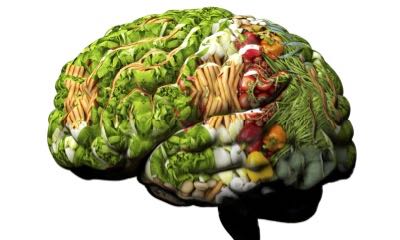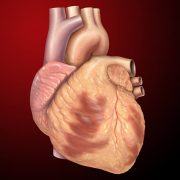Search for the Real Chill Pill: Nutrients and Mood
Hanger (a combination of hunger and anger) is a very real emotional response for some. It rears its ugly head when you’re hungry and food isn’t forthcoming. If you’ve ever experienced hanger, you know the power food has over your mood.
But the impact eating has on your attitude is about more than keeping your belly full. There are important ties between specific nutrients and mood. Those connections deserve exploration. That’s because nutritional remedies can pair well with healthy habits, self-care, professional recommendations, and lifestyle adjustment to help manage your mood.
You can design a diet that keeps you satisfied and helps your body maintain the conditions for a bright mood. And it will help you keep the hanger at bay.
The Basics of Food, Nutrients, and Mood
If you’re wondering why food is important to your mood, blame your brain—mostly. Your body’s command center deals with the demands of running your body. But it’s also pretty demanding, too.
Your brain churns through a lot of energy. It also is a bit of a hedonist—valuing pleasurable reward over almost anything. Food is the key to caloric contentment and also provides pleasure for your brain. Eating triggers the release of important brain chemicals (called neurotransmitters) with ties to mood—especially endorphins, serotonin, and dopamine.
It’s not just your brain, though. The nutritional needs of your whole body can impact how you feel. Even small nutrient insufficiencies can have major consequences. A lack of some micronutrients can start a chain reaction. Enzymes (helper proteins in your body) don’t work as well without vitamins and minerals to aid their activity. When enzymes aren’t in tip-top shape, your mood—and other aspects of your health—can suffer.
That’s probably why adequate nutrition (including supplementation) has been shown in many studies and meta-analyses to support your mood. One specific double-blind experiment tested large doses of nine vitamins against a placebo. After a year, males and females both reported being more agreeable.
Science backs up the ties between food, nutrients, and mood. So, how can you use this knowledge to your advantage? What nutrients and foods should you target? The answers await in this list of mood-supporting nutrients and compounds.
Magnesium for Your Mood
Your whole body needs magnesium. That’s why it’s an essential mineral. But it goes above and beyond, acting as a helper for over 300 enzyme systems in your body. With that widespread impact, there have to be some crossovers with mood management, right?
One such connection between magnesium and mood happens in your brain (no surprise). The mineral acts as a buffer for important receptors in nerve and brain cells. This protective action helps keep these cells healthy.
Magnesium also plays a role in stress responses. It acts as a triple-pronged check on stress responses in your body:
- In the brain, it helps maintain normal stress-hormone levels.
- Atop the kidneys, magnesium supports the adrenal glands’ normal response to a hormone that activates cortisol and adrenaline production, which helps support healthy levels of these stress hormones.
- In the bloodstream, it can act as a blood-brain barrier to maintain a healthy interaction between stress hormones and the brain.
To top it all off, magnesium has ties to maintaining normal, healthy serotonin levels in the brain. Serotonin is your master mood maintainer and is tied to feelings of happiness.
Find magnesium in green leafy vegetables, whole grains, nuts, meats, and milk. Even some hard water contains variable amounts of this mineral.
Zinc is an Amazing Mood Metal
Like magnesium, zinc is a helper in over 300 enzymes. But the biggest stock of zinc is in your brain’s hippocampus—a major mood center.
Zinc also aids in brain health through its role in cell growth, differentiation, and neural function. It participates in fine-tuning stress responses in your brain and body. Zinc is even important to cell signaling and various brain chemicals.
Studies about memory, learning, and mood have found links between optimal zinc levels and supporting brain health and normal mood maintenance. Don’t miss out on this mineral. You can find zinc in meat, liver, eggs, oysters, and seafood.
In the Mood for B Vitamins
If you get overwhelmed trying to understand the differences between all the B vitamins, there’s a solution. Take a variety of these eight essential vitamins. It won’t help you keep them straight, but many of the B vitamins have been shown to support your mood. So, at least you’ll feel OK about it.
B vitamins are critical in the production of brain chemicals that impact your mood—particularly dopamine and serotonin. Both of those brain chemicals have ties to happiness and pleasure. If you don’t have enough B vitamins (especially B6 and B12) to make adequate amounts of the neurotransmitters, you can start to feel it.
Several B vitamins also help keep your nerves healthy. That’s important for good communication, which plays a role in your overall state of mind. Thiamin (B1) has also been show in studies to support mood.
The B vitamins are scattered throughout the dietary landscape. Find thiamin in brown rice and squash. Riboflavin is in dairy products, spinach, almonds, and broccoli. Beans, bananas, potatoes, meat, and nuts contain vitamin B6. For folate, turn to legumes, asparagus, fortified breakfast cereals, and spinach. And B12 is abundant in seafood, beef, fish, and eggs.
Omega-3s: In Mood, Fat is Your Friend
Your brain is about 60 percent fat. It’s just a fact, because fat—especially essential fatty acids like omega-3s—is what your brain is mainly made out of. And since your brain is largely responsible for your mood, fat has ties to how you feel.
The fatty makeup of your central nervous system is crucial to proper signaling. Omega-3s make up about 20 percent of your brain cell membranes and your nervous system is also composed of a lot of fat. So, keeping those membranes stocked with essential fatty acids help maintain healthy membranes, which helps promote healthy signaling and support a balanced mood.
Your body can’t make enough of the important omega-3s (DHA and EPA) you need. That’s why they’re so important. You’ll have to turn to your diet. Adding more fatty, cold-water fish (think mackerel, salmon, herring, and anchovies) to your meals is a great way to get more omega-3 DHA and EPA.
Caffeine Can Elevate More Than Energy
You don’t want to talk to some people before they’ve had their morning coffee. Blame caffeine.
The world’s most popular natural stimulant has big effects on energy and mood. It revs up the body’s central nervous system and has been doing so for centuries all around the world. The popularity and longevity of this mood-affecting substance says a lot about the power and effectiveness of caffeine. But how does it actually work?
The long explanation involves a lot of brain chemicals and receptors. The short answer is that caffeine supercharges your brain and nervous system. It supports your naturally stimulating chemicals, which helps you stay alert and feeling better about the day.
Make sure to manage your caffeine intake so it doesn’t overstimulate anxieties or throw your sleep schedule out of whack. You can find caffeine in coffee, green and black tea, and chocolate.
Dark Chocolate, Lighter Moods
Reaching for chocolate when you feel down is natural. That’s because it’s the king of mood foods. And turning to dark chocolate has well-studied mood benefits, and is much better for you than milk chocolate.
The more cacao (or cocoa) in the chocolate, the more mood-supporting compounds you’ll find. Anandamide is one. This fatty acid acts as a neurotransmitter that can affect mood. Another, phenylethylamine, is an organic compound that acts like a mood-supporting brain and nervous system chemical.
Be careful with this semi-sweet treat. You’ll still get sugar and lots of fat. But darker chocolate (the higher the percent of cacao or cocoa, the darker the product) has a better balance of beneficial and unhealthy components.
Nutrients and Mood: Other Emerging Compounds
Researchers are constantly evaluating new connections between specific nutrients and mood. They’re picking out different plant compounds found in the diet and throughout world history to explore how they support a healthy, normal mood.
Here’s just a few compounds that have been around for a long time, but have new, emerging research about mood maintenance:
- Saffron: a vibrant spice made from the saffron crocus flower.
- Ashwagandha: an important herb used as an herbal preparation in India for thousands of years.
- Lemon Balm: a common herb in the mint family.
Feed Your Mood
Take charge of your temperament. Pack your diet with foods containing these mood-supporting nutrients. And see how diet decisions can do more than stave off the hanger monster. If you struggle fitting these nutrients in your meals, supplementation is a good alternative—especially for those who may have dietary restraints. Whether through a meal or supplementation, it’s time to give “eating your feelings” a new meaning.
References
“10 nutrients that can lift your spirits”
“A Food-Mood Connection: B Vitamins and Depression.”
“Cocoa Polyphenols and Cardiovascular Health.” Science Direct online.
“Does diet affect our mood? The significance of folic acid and homocysteine”
“Magnesium and the Brain: The Original Chill Pill”
“Omega-3 fatty acids for mood disorders”
“Role of zinc in the development and treatment of mood disorders.”
“The Effects of Nutrients on Mood.”
“The Emerging Role for Zinc in Depression and Psychosis.”
“Vitamin Supplementation for 1 Year Improves Mood”
“What caffeine does to your body and brain”




















